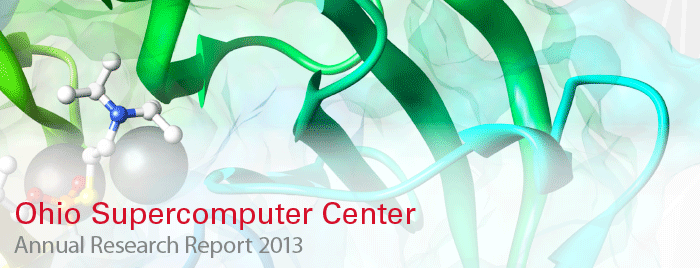Ohio Supercomputer Center engineers partnered with experts at Technology Management Inc. to model TMI’s fabrication process and component specifications of its highly efficient fuel cells.
Since the early 1990s, the promise of fuel cells has been onsite power generation with the same round-the-clock availability that has long been the exclusive province of the electric utility industry, but without the cumbersome distribution grid. Engineers at Technology Management, Inc. (TMI) have developed a solid oxide fuel cell (SOFC) system and are collaborating with Lockheed Martin, a major American defense contractor, and Stark State College of Technology to commercialize this technology project.
“Our system design specifically focuses on a simple, low cost platform that can be produced in volume by Ohio’s automotive supply chain and appliance manufacturers,” said Benson Lee, president of TMI. “The high fuel efficiency of fuel cells – consuming a third to a half the fuel of a comparable diesel genset – will save lives and hundreds of millions of dollars annually, the price being paid to get fuel to the front lines.”
TMI engaged with the Ohio Supercomputer Center to conduct SolidWorks geometry testing to optimize the efficiency of their fuel cell technology platform. The TMI-OSC partnership arose through the federal National Digital Engineering and Manufacturing Consortium (NDEMC) program, a public-private partnership funded by the U.S. Economic Development Administration to support and enhance the use of modeling and simulation among America’s small and medium manufacturers.
“Models were prepared for both fuel cells and hot subassemblies to help optimize performance through iterative simulation of various flow and geometric factors associated fuel cell operation,” said Lee. “The net result we expect from the project will include improved product performance and reliability, resulting in decreased time to market introduction, with accelerated manufacturing job creation and accelerated market expansion.”
The models prepared and tested by OSC staff have been used to improve understandings that could not be obtained through experimental methods. Individual fuel cells were modeled to determine the impact of imperfections in the fabrication process on cell and stack performance. The data from these simulations have been used to modify TMI’s fabrication process and component specifications, which has helped improve reproducibility and performance.
TMI is currently testing these improvements and preliminary findings have shown promising results. By utilizing OSC’s advanced computing resources through its solution partners to achieve both its technology and production goals, Lee is confident that TMI will remain competitive in its targeted global markets for years to come.
Project Lead: Benson P. Lee, Technology Management Inc.
Research Title: Modeling of fuel cell stacks and systems
Funding Source: National Digital Engineering and Manufacturing Consortium
Website: http://AnywherEnergy.com/

